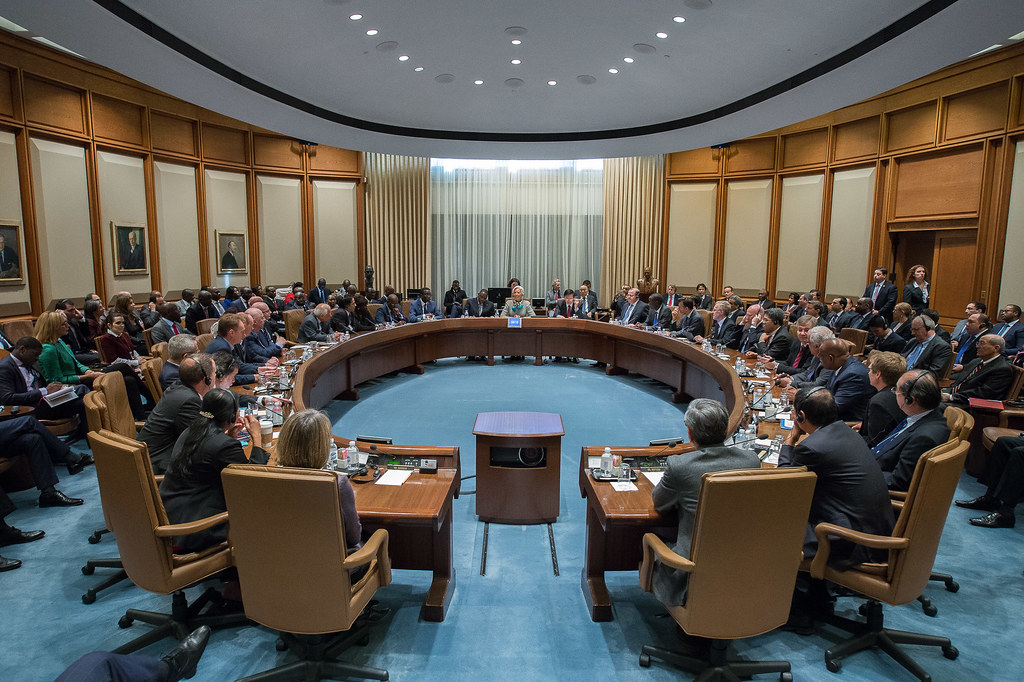The International Monetary Fund (IMF) has completed the first review of the Extended Credit Facility (ECF) Arrangement and the 2023 Article IV Consultation with Tanzania. This completion allows Tanzania to receive immediate disbursement of SDR 113.37 million (about US$ 153 million), bringing the total access under the arrangement to about US$ 304.7 million.
The ECF Arrangement, approved on July 18, 2022, aims to support Tanzania’s economic recovery, preserve macro-financial stability, and promote sustainable and inclusive growth. The reform program focuses on strengthening fiscal space for social spending and high-yield public investment, enhancing monetary policy, improving financial sector supervision, and advancing structural reforms.
Tanzania’s economic reform program is progressing well, with all quantitative performance criteria and indicative targets for December 2022 being met. Structural benchmarks related to clearing expenditure arrears and submitting amendments to the Banking and Financial Institutions Act were completed ahead of time. In contrast, others, such as the post-crisis audit of pandemic-related spending, were completed with delay. The IMF projects Tanzania’s real GDP growth to recover to 5.2 percent in 2023, following a slowdown to 4.7 percent in 2022 due to global economic conditions and rainfall shortfalls. The authorities have responded to spillovers from the war in Ukraine with temporary fiscal support and monetary policy tightening.
The IMF supports Tanzania’s commitment to economic reforms and encourages further efforts in enhancing domestic revenue mobilization, improving expenditure efficiency, strengthening public finance management, and containing fiscal risks. The central bank, the Bank of Tanzania, is advised to stand ready to tighten monetary policy and complete the transition to an interest rate-based policy.
Structural reforms to promote inclusive and sustainable growth include streamlining bureaucratic procedures, enhancing regulatory transparency, and addressing corruption and AML/CFT framework deficiencies.
Tanzania’s high vulnerability to climate change calls for resilience-building through mitigation and adaptation policies, with support from a broad financing strategy. The IMF Executive Board commends Tanzania’s policy response to global challenges. It encourages continued engagement and capacity development support by the Fund and other partners to strengthen the economic recovery and foster sustainable growth.
Mr. Bo Li, the Deputy Managing Director of the International Monetary Fund (IMF), recently concluded his visit to Tanzania, where he applauded the country’s remarkable commitment to maintaining macroeconomic stability amidst global challenges. During his visit, Mr. Li engaged with various Tanzanian officials, including Vice President Dr. Philip Isdor Mpango, Minister of Finance Dr. Mwigulu Nchemba, and Bank of Tanzania Governor Emmanuel Tutuba. He also interacted with representatives from the private sector, civil society, and development partners.
One of the critical highlights of Mr. Li’s visit was Tanzania’s swift policy response to contain inflation and safeguard its economy against global spillovers, particularly in light of the war in Ukraine. Mr. Li praised the authorities for their unwavering commitment to preserving the country’s macroeconomic stability amidst a challenging global environment. He also lauded Tanzania’s ongoing reform program, supported by the IMF’s Extended Credit Facility (ECF), approved in July 2022. Mr. Li encouraged Tanzania to enhance domestic revenue mobilization through tax reforms during his interactions.
The country can bolster its capacity to finance social spending and priority investments by doing so. Emphasizing the importance of investing in human capital, Mr. Li urged increased spending on education and health, recognizing their role in fostering long-term economic development.
IMF’s Projections for Tanzania
According to the IMF, Tanzania’s real GDP growth is projected to rebound to approximately 7% over the medium term. Inflation is expected to return to the target set by the Bank of Tanzania, and the current account deficit is anticipated to moderate over the medium term as global shocks subside. The authorities’ reform efforts started to bear fruit. In July 2022, the IMF’s Executive Board approved a 40-month extended arrangement under the Extended Credit Facility (ECF) for Tanzania.
This arrangement provides access equivalent to SDR 795.58 (approximately 200% of quota, equivalent to USD 1,046.4 million). In April 2023, the Executive Board completed the first review of the Extended Credit Facility (ECF) Arrangement and the 2023 Article IV Consultation with Tanzania.
As a result of the successful study, Tanzania received immediate budget support of SDR 113.37 million (about USD 153 million), bringing the country’s total access under the arrangement to about USD 304.7 million.
In my opinion, Tanzania’s commitment to maintaining macroeconomic stability and its dedication to ongoing reforms have garnered international recognition and praise from the IMF. The institution’s support through the Extended Credit Facility underscores the country’s progress and potential for robust, sustainable, and inclusive economic growth.
As Tanzania continues implementing its reform program and investing in human capital, the future looks promising for this African nation on its path towards development and prosperity.

